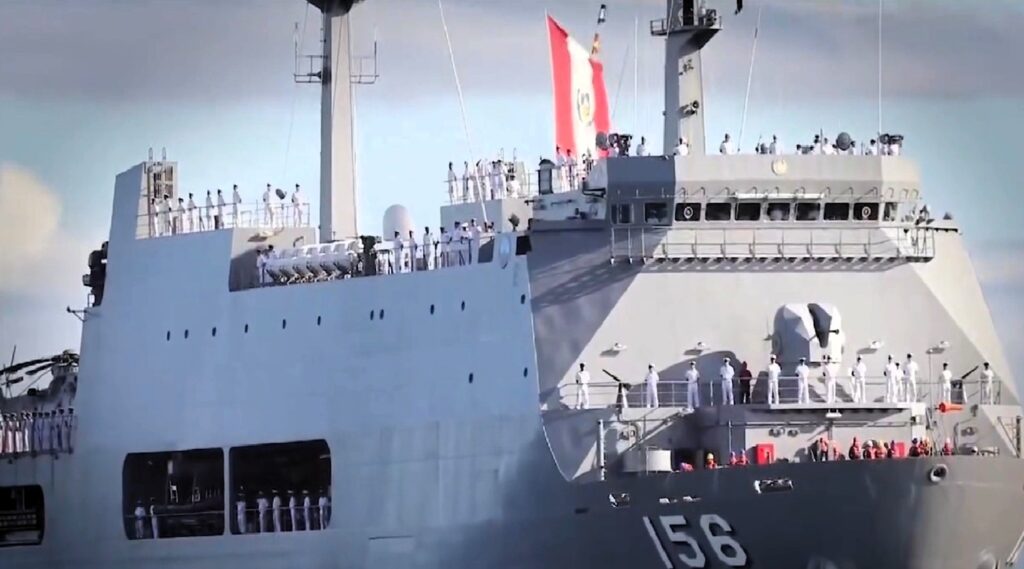Agencia Peruana de Noticias PRENSAPERU.PE https://prensaperu.pe/ Twitter: @prensaperupe El 8 de octubre de 1879, Perú conmemora el Combate de Angamos, una de las batallas navales más decisivas en la historia de la Guerra del Pacífico contra Chile. En esta jornada heroica, el almirante Miguel Grau, conocido como el “Caballero de los Mares”, lideró la defensa naval peruana con valentía y honor, enfrentándose a las fuerzas chilenas en un acto de sacrificio y patriotismo que quedó grabado en la memoria nacional.
BIOGRAFÍA DE MIGUEL GRAÜ SEMINARIO
Miguel Grau Seminario (1834-1879) fue un destacado marino peruano, considerado uno de los héroes nacionales y un símbolo de integridad y heroísmo. Desde joven, Grau mostró un espíritu de servicio y liderazgo, llegando a ser comandante de la Marina de Guerra del Perú. Su legado se consolidó durante la Guerra del Pacífico, donde su valentía y sentido del honor le ganaron el respeto de sus compatriotas y el reconocimiento internacional. Falleció en la Batalla de Angamos, defendiendo con valentía su patria.
SIGNIFICADO Y TRASCENDENCIA
El ejemplo de Miguel Grau trasciende en el tiempo como un símbolo de patriotismo, honor y sacrificio por la nación. En un contexto actual, su figura inspira a los peruanos a mantener la integridad, la valentía y el compromiso con el país, especialmente en momentos de desafíos y adversidades. Grau representa la lucha por la justicia y la defensa de los valores nacionales, valores que siguen siendo relevantes en la construcción de una sociedad más justa y solidaria.
MIGUEL GRAÜ SEMINARIO HERMANO MASÓN
Miguel Grau Seminario fue iniciado en la masonería en 1876, adoptando el nombre simbólico de “Caupolicán”. Su pertenencia a la logia “Orden y Libertad” de Valparaíso Chile, refleja su compromiso con los ideales de libertad, igualdad y fraternidad. Aunque su participación masónica no fue ampliamente documentada, se sabe que Grau valoraba los principios éticos y morales promovidos por la masonería, los cuales se alineaban con su integridad y sentido del deber. Su figura como héroe naval peruano se entrelaza con su faceta de hombre comprometido con el progreso y la justicia social, valores que resonaban tanto en su vida militar como en su afiliación masónica.
CONCLUSIÓN
El homenaje a Miguel Grau en el día de Angamos nos recuerda la importancia de honrar a quienes entregaron su vida por el Perú. Su ejemplo nos invita a fortalecer el amor por la patria, a actuar con honor y a mantener viva la memoria de quienes, como Grau, sacrificaron todo por un país más digno y soberano.
Fuente: Agencia Peruana de Noticias PRENSAPERU.PE https://prensaperu.pe/ Twitter: @prensaperupe

English Translation
October 8: Celebrating the bravery of the “Knight of the Seas” Miguel Grau Seminario in times of national unity.
Peruvian News Agency PRENSAPERU.PE https://prensaperu.pe/ Twitter: @prensaperupe On October 8, 1879, Peru commemorates the Battle of Angamos, one of the most decisive naval battles in the history of the War of the Pacific against Chile. On this heroic day, Admiral Miguel Grau, known as the “Knight of the Seas,” led the Peruvian naval defense with courage and honor, confronting Chilean forces in an act of sacrifice and patriotism that will remain etched in the national memory.
BIOGRAPHY OF MIGUEL GRAÜ SEMINARIO
Miguel Grau Seminario (1834-1879) was a distinguished Peruvian sailor, considered one of the nation’s heroes and a symbol of integrity and heroism. From a young age, Grau displayed a spirit of service and leadership, rising to the rank of commander of the Peruvian Navy. His legacy was cemented during the War of the Pacific, where his bravery and sense of honor earned him the respect of his countrymen and international recognition. He died in the Battle of Angamos, bravely defending his homeland.
SIGNIFICANCE AND TRANSCENDENCE
Miguel Grau’s example transcends time as a symbol of patriotism, honor, and sacrifice for the nation. In the current context, his figure inspires Peruvians to maintain integrity, courage, and commitment to their country, especially in times of challenge and adversity. Grau represents the fight for justice and the defense of national values, values that remain relevant in building a more just and supportive society.
MIGUEL GRAÜ SEMINARIO, BROTHER, MASON
Miguel Grau Seminario was initiated into Freemasonry in 1876, adopting the symbolic name “Caupolicán.” His membership in the “Orden y Libertad” lodge of Valparaíso, Chile, reflects his commitment to the ideals of liberty, equality, and fraternity. Although his Masonic involvement has not been widely documented, it is known that Grau valued the ethical and moral principles promoted by Freemasonry, which aligned with his integrity and sense of duty. His image as a Peruvian naval hero is intertwined with his role as a man committed to progress and social justice, values that resonated both in his military life and in his Masonic affiliation.
CONCLUSION
The tribute to Miguel Grau on Angamos Day reminds us of the importance of honoring those who gave their lives for Peru. His example invites us to strengthen our love for our country, to act with honor, and to keep alive the memory of those, like Grau, who sacrificed everything for a more dignified and sovereign country.
Source: Peruvian News Agency PRENSAPERU.PE https://prensaperu.pe/ Twitter: @prensaperupe
